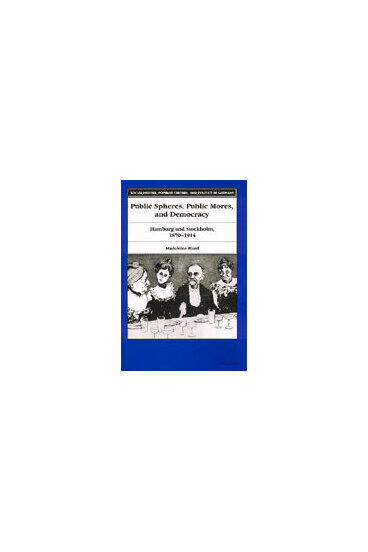Public Spheres, Public Mores, and Democracy
Hamburg and Stockholm, 1870-1914
A highly readable and innovative argument about European liberalization before World War I
Description
In the long debate about the failure of German democracy in the early twentieth century, most comparisons have been made, implicitly or explicitly, with Great Britain. Madeleine Hurd's Public Spheres, Public Mores, and Democracy proposes a useful alternative--the comparison of prewar Germany with Sweden, which, like Germany, was characterized by a conservative monarchy, late industrialization, and a weak, fractured bourgeoisie.
Hurd's book offers the reader a close analysis of the political impact of nineteenth-century cultural and educational crusades, linking the process of democratization to left-wing parties' use of cultural, educational, and freethinking appeals. Both socialist and left-liberal leaders emphasized the politics of taste, sobriety, and self-respect, challenging realities and perceptions of who was acceptable in the public political sphere and who was to be excluded as immature, uncultured, and uncouth.
The two-city comparison suggests interesting conclusions. Moral and educational crusades could bring liberals and socialists together in common attacks on a drunken and irresponsible plutocracy. Cultural issues could also drive them apart, as the bourgeoisie and workers established rival claims to public respectability and autonomy. Public Spheres, Public Mores, and Democracy provides a compelling account of how the moral content of citizenship claims affected each city's and each country's long-term democratic stability. In the process, it indicates new ways of understanding the historical realities, and values, of the bourgeois public sphere.
Madeleine Hurd is Assistant Professor of History, University of Pittsburgh.
Madeleine Hurd is Assistant Professor of History, University of Pittsburgh.

